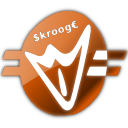Projects/Skrooge: Difference between revisions
updated to 0.5.4 |
m Updated to version 0.5.5 |
||
| Line 21: | Line 21: | ||
==== Latest Release ==== | ==== Latest Release ==== | ||
You can download the [http://websvn.kde.org/*checkout*/tags/skrooge/0.5. | You can download the [http://websvn.kde.org/*checkout*/tags/skrooge/0.5.5/skrooge-0.5.5.tar.bz2 archive file] containing the source code, and extract its content using your favorite extraction tool, such as [http://userbase.kde.org/ark Ark]. | ||
==== Development Version ==== | ==== Development Version ==== | ||
Revision as of 23:32, 5 December 2009
Skrooge
Languages: عربي | Asturianu | Català | Česky | Kaszëbsczi | Dansk | Deutsch | English | Esperanto | Español | Eesti | فارسی | Suomi | Français | Galego | Italiano | 日本語 | 한국어 | Norwegian | Polski | Português Brasileiro | Română | Русский | Svenska | Slovenčina | Slovenščina | српски | Türkçe | Tiếng Việt | Українська | 简体中文 | 繁體中文
 |
Skrooge is a personal finances manager for KDE4, aiming at being simple and intuitive. It allows you to keep track of your expenses and incomes, categorize them, and build reports of them. Learn more... Skrooge is a part of KDE Extragear, in the Office module |
This page is dedicated to developpers or advanced users who wish to have a deeper understanding of Skrooge.
Compiling
Before we start, please consider using a precompiled package for your distro. You should only be compiling yourself if there is no package yet for your distro, or if you want the latest version, directly from the developpers.
Get the Sources
First, you will need to get the Skrooge source code. There are two ways to do this.
Latest Release
You can download the archive file containing the source code, and extract its content using your favorite extraction tool, such as Ark.
Development Version
Like all KDE applications, the source code is stored in KDE's Subversion system, in the extragear/office folder. Please refer to the Subversion Tutorial for KDE. You will need an SVN account to get it from there. svn co svn://anonsvn.kde.org/home/kde/trunk/extragear/office/skrooge
Dependencies
To be able to compile and run Skrooge, you will need some additional components
KDE4 Headers
Skrooge being a KDE4 application, it depends on many things in the KDE headers. You can get them from your distribution's packages (name usually contains KDE4+devel, KDE4+headers), or directly from KDE repositories.
QCA
Qt Cryptographic Architecture. Get it from your distribution packages.
libofx
A library to handle import for OFX files. Get it from your distribution packages.
Build & Install
Place yourself in the directory containing the source code, and create a directory named "build" (This is useful to segregate built files from the source code). Open a Konsole in this directory, and run the following commands (as a normal user) :
mkdir build && cd build
cmake .. -DCMAKE_INSTALL_PREFIX=`kde4-config --prefix`
make
(please note the backquotes in the cmake command, they are important...)
Then, with root privileges :
make install
Uninstall
Tried Skrooge but didn't like it ? Sorry to hear this... You can uninstall it by running this command in the aforementionned "build" directory, with root privileges :
make uninstall
Debugging
Trace activation
To activate traces, you need to export an environment variable in your console:
export SKGTRACE=XX
XX is the level of traces you want. It should be an integer between 0 and 20. The higher the number, the higher the quantity of information you get. 10 is good compromise.
Then, start Skrooge from this console. This will display a lot of information in your terminal, giving you hints as to what could be going wrong if you face issues.
Profiling
To activate the basic profiling mechanism included in Skrooge, you need to export an environment variable in your console:
export SKGTRACEPERFO=1
Once Skrooge is started from this console, you can find two new commands:
- Restart profiling (CTRL+Pause) to initialize the profiling
- Open profiling (ALT+Pause) to open the result of the profiling
Profiling results look like this:
method , nb call , millisecondes , average , min , max , own time , average own time SKGMainPanel::setNewTabContent-addTab , 1 , 38.26897848 , 38.26897848 , 38.26897848 , 38.26897848 , 25.6370585 , 25.6370585 SKGObjectModelBase::refresh , 2 , 8.741794825 , 4.370897412 , 0.9698964357 , 7.771898389 , 8.147958875 , 4.073979437 SKGMainPanel::setNewTabContent , 1 , 49.36599612 , 49.36599612 , 49.36599612 , 49.36599612 , 3.772916079 , 3.772916079 SKGOperationBoardWidget::SKGOperationBoardWidget , 1 , 3.179117203 , 3.179117203 , 3.179117203 , 3.179117203 , 2.963078141 , 2.963078141 SKGMainPanel::onOpenContext , 1 , 50.43999612 , 50.43999612 , 50.43999612 , 50.43999612 , 1.074000001 , 1.074000001 ...
Remark: If SKGTRACE is set then you will be able to find the execution time of each methods in traces.
To profile only sql instructions, you can export an environment variable in your console:
export SKGTRACESQL=XX
Only sql order with an execution time greater then XX ms will be displayed in console.
In the console, you will get something like:
executeSqliteOrder : SELECT t_name, t_TYPENLS, f_CURRENTAMOUNT, t_close from v_account_display WHERE (t_type='C' OR t_type='D' OR t_type='I' OR t_type='O') ORDER BY t_TYPENLS, t_name TIME='441 ms'
